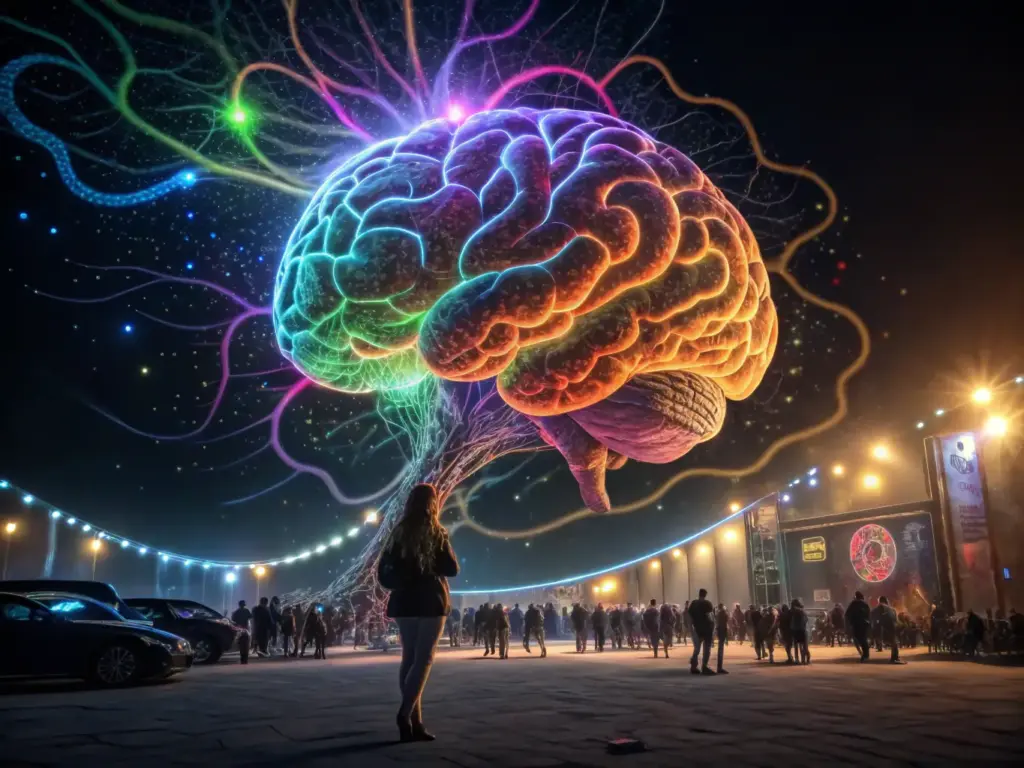
Introduction: The Brain’s Fundamental Need for Connection
Humans are inherently social creatures. Our brains didn’t just evolve to think, plan, or survive in isolation—they evolved to connect, cooperate, and belong to groups. This social wiring is fundamental to your brain’s health, emotional wellbeing, and even physical survival.
Understanding the social brain helps explain why loneliness feels physically painful, why trust and cooperation boost resilience, and why social rejection can hurt as much as physical wounds.
The Evolutionary Roots of Our Social Wiring
Our ancestors survived best in small tribes where cooperation ensured hunting, defense, and resource sharing.
The brain developed circuitry dedicated to social cognition—recognizing faces, reading emotions, and responding to social cues.
Key brain areas involved:
The oxytocin system: the “bonding hormone” that promotes trust and attachment
The mirror neuron system: enabling empathy and social learning
The anterior cingulate cortex and insula: processing social pain and pleasure
Strong social bonds meant increased survival chances and emotional support in uncertain environments.
The Modern Paradox: Hyper-Connected Yet Lonely
Despite instant digital connections, many people report feeling lonely, disconnected, or misunderstood.
Social media creates constant comparison and sometimes superficial relationships, increasing feelings of inadequacy.
Digital communication lacks the full depth of face-to-face interaction—the nuances of tone, body language, and shared presence.
The evolutionary mismatch means your brain craves true connection, but often faces noise and distraction instead.
Why Loneliness Is More Than Just Feeling Sad
Loneliness activates the same brain regions as physical pain, warning you to repair social bonds urgently.
Chronic loneliness increases stress hormones, weakens immunity, and raises risk for anxiety and depression.
Social isolation reduces the release of oxytocin and dopamine, chemicals essential for pleasure and emotional regulation.
The Healing Power of Connection
Genuine social connection helps lower cortisol (stress hormone) levels.
Supportive relationships activate reward centers, releasing dopamine and oxytocin.
Connection improves focus, memory, creativity, and resilience.
Practical Ways to Cultivate Connection in a Disconnected World
1. Prioritize Face-to-Face Interactions
Seek opportunities for in-person interactions or video calls to regain lost emotional nuance.
2. Build Safe Social Circles
Surround yourself with people who listen deeply, support growth, and foster belonging.
3. Develop Social Mindfulness
Listen actively and without judgment.
Notice your own emotions and others’.
Practice empathy intentionally.
4. Disconnect to Reconnect
Limit social media and digital noise that fragment attention and promote comparison.
5. Engage in Shared Activities
Group walks, volunteering, or creative projects foster collective purpose and bonding.
Social Brain and Emotional Resilience
Your social connections act as emotional buffers during stress. They offer:
Validation of your feelings and experiences
Perspective on challenges
Encouragement to face fears and setbacks
Building and maintaining these social supports is crucial for mental health and growth.
Summary Table: Social Brain Functions and Impact
| Social Brain Feature | Role in Connection | Impact on Wellbeing |
|---|---|---|
| Oxytocin system | Promotes trust and bonding | Lowers stress, fosters attachment |
| Mirror neuron system | Enables empathy and social learning | Enhances cooperation and understanding |
| Pain-processing regions | Warn against social exclusion | Motivates social repair, signals distress |
| Reward circuits | Reinforce pleasurable social contact | Boost mood, reduce anxiety |
Final Thought: Connection Is a Biological Need—and a Healing Practice
Your brain was built to thrive in community, not isolation. In a noisy, fast-paced modern world, intentionally cultivating deep, meaningful social relationships is not a luxury—it is a necessity for your mental, emotional, and physical health.
Even small acts of kindness, listening, and presence activate your social brain’s healing pathways.
You are wired to connect. Go forth and nourish that connection—for your own wellbeing, and for the health of your ancient brain.
The Social Brain: Why Connection Heals and Isolation Harms
Humans evolved as social creatures: our brains are wired for belonging, cooperation, and emotional connection. Strong relationships not only make life richer—they directly support mental and physical health. Social contact reduces stress, enhances resilience, and boosts the immune system. Conversely, chronic isolation or loneliness activates the brain's pain centers and increases the risk of depression, anxiety, and even physical illness. Thus, cultivating meaningful connection is not just a luxury—it's a deep biological need with real healing power.
References
-
Cacioppo, J. T., & Cacioppo, S. (2014). Social Relationships and Health: The Toxic Effects of Perceived Social Isolation. Social and Personality Psychology Compass, 8(2), 58–72.
DOI: 10.1111/spc3.12087
Find in Google Scholar -
Holt-Lunstad, J., et al. (2010). Social Relationships and Mortality Risk: A Meta-analytic Review. PLoS Medicine, 7(7): e1000316.
DOI: 10.1371/journal.pmed.1000316
Find in Google Scholar - Why We Need Close Relationships (Verywell Mind, 2023 summary)
- Loneliness and Health (Psychology Today, 2024)
